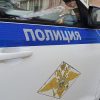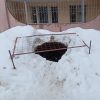
French kids can skip school this Thursday and Friday, the prime minister has confirmed, in bid to avoid Covid Christmas upsurge
Credit: ERIC GAILLARD/Reuters
French schoolchildren will be allowed to skip school on Thursday and Friday so families can self-isolate in the run-up to Christmas as Europe tightens the screw over the festive period.
Families who plan to host people vulnerable to the coronavirus, in particular elderly relatives, should quarantine for a week beforehand if possible, France’s medical council advised on Tuesday.
Schools should not punish pupils who missed the last two days of the academic term, the council added.
Asked if he supported the recommendation, prime minister Jean Castex told Europe 1: "Of course."
With governments desperate to control a stubborn second wave of the virus, France lifted a national lockdown on Tuesday only to replace it with a nightly curfew between 8pm and 6am, which will be lifted on Christmas Eve but not for New Year’s Eve.
Travel around the country and abroad is now authorised but families have been urged to keep gatherings to six adults even if the limit is a recommendation rather than an order.
Due to re-open this week, theatres, museums and cinemas will remain closed until January 20, along with bars and restaurants, with Mr Castex warning that they would be only be able to open doors on January 20 if daily infection rates dropped sufficiently.

French Prime Minister Jean Castex has confirmed that children can skip school so as not to infect elderly relatives at Christmas
Credit: MARTIN BUREAU/AFP
Elsewhere, Belgium on Tuesday told its Dutch neighbours not to cross the border to do their Christmas shopping after the Netherlands closed shops in a new lockdown.
Alexander de Croo, the Belgian prime minister, warned that the federal and city authorities would “intervene if necessary”.
Mr de Croo said he had held talks with Mark Rutte, the prime minister of the Netherlands.
He told him that recreational shopping was banned in Belgium, that shoppers must shop alone and for a maximum of 30 minutes in each store.
Interior Minister Annelies Verlinden urged the Dutch to tell their citizens not to come to Belgium. “If that does happen, we will take strict measures,” she said.
The Dutch government has strongly advised its citizens not to cross the border. On Monday night, Mr Rutte said people should not make plans to travel abroad until mid-March at least.
He announced the closure of all non-essential shops and schools and universities until January 19.
Belgium is facing increasing infection rates but, until Monday’s announcement, had stricter measures in place than the Netherlands, including a curfew.
The country’s health minister said that new measures could be introduced on Friday “if necessary” after figures published Tuesday showed the average number of daily infections had risen for the third day in a row to 268.2 cases per 100,000 residents. The Netherlands has 546.7.
Steven van Gucht, a prominent Belgian virologist, urged the Dutch to “stay home and order online” rather than hop across the border, which is usually unpoliced.
In November, when rules were stricter in Belgium than in the Netherlands, many Belgians crossed the border to shop or visit cafes and restaurants.

Amsterdam and Belgium are eyeing each other's borders
Credit: PIROSCHKA VAN DE WOUW/ REUTERS
Belgium and the Netherlands are members of the EU’s passport-free Schengen zone. The close neighbours are also members of the Benelux group, which removed customs barriers and introduced free movement in 1958 long before the EU did the same.
The border between the two countries was closed during the first coronavirus wave, with crossings only allowed with a special permit.
The reintroduction of border controls across the EU caused widespread anxiety over the future of Schengen.
EU-level initiatives are underway to ensure that any future intra-EU border closures are pre-notified and better coordinated in the future.
Over in Italy, the government is considering drastically increasing restrictions over the Christmas period to avoid making the same mistakes as it did over the summer when the situation was too relaxed.
"Further, new restrictions are now needed … we must avert at all costs a third wave, because this would be devastating, also from the point of view of the loss of lives," prime minister Giuseppe Conte told La Stampa.
"At the first hint that the infection curve is slowing down, we are about to make exactly the same mistakes. Experience has taught us nothing," said Giuseppe Ippolito, a member of the government’s scientific committee.
"The virus is there, it is as dangerous as it was in March," he added, referring to the peak of the pandemic with 900 deaths a day.
Since May, when Italy’s first lockdown ended, 30,000 Italians have died of Covid-19, he said.
Italians will not be able to attend a midnight mass on Christmas Eve and will be only allowed to move between regions in emergencies over the holiday period starting on December 20.
Pope Francis’s Christmas Eve Mass will start two hours earlier, allowing the limited number of people who can attend to be home by 10pm.























































Свежие комментарии